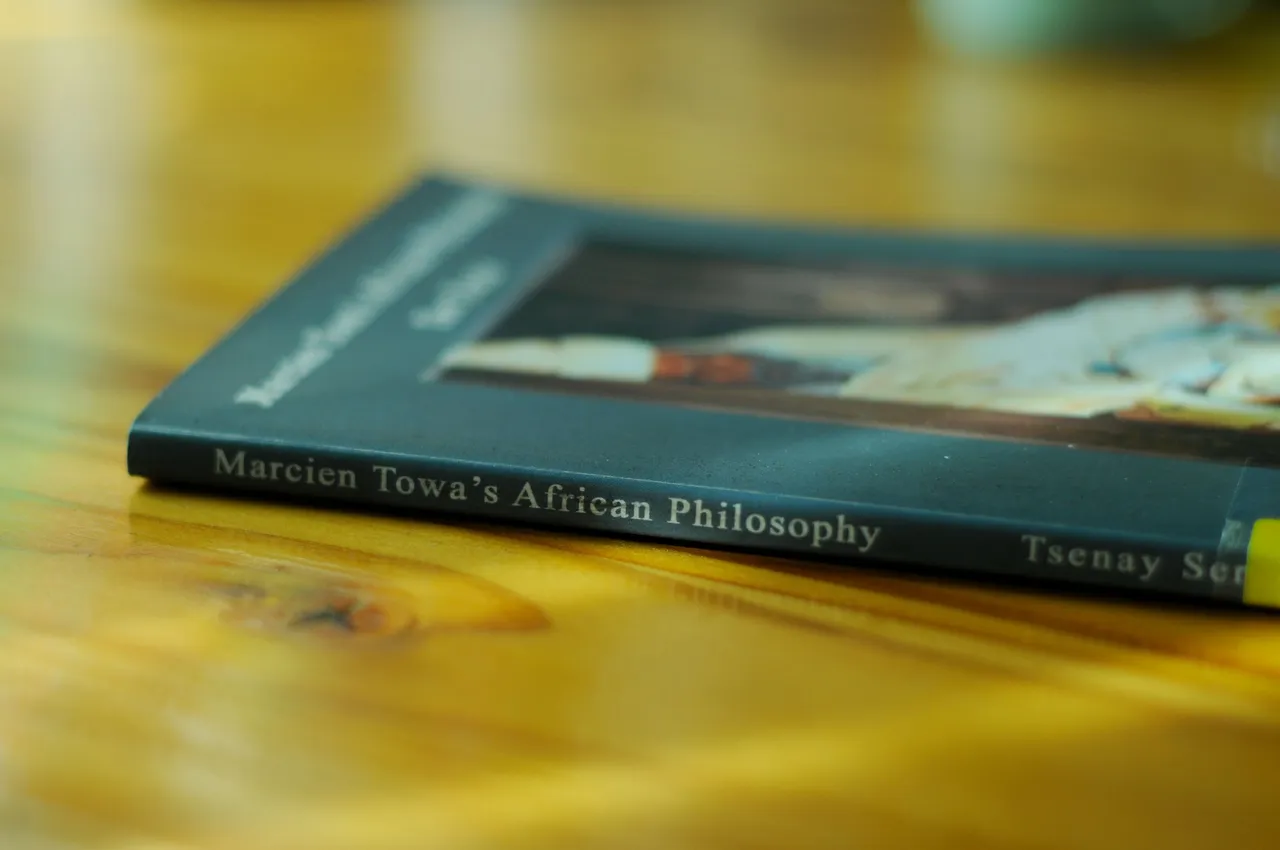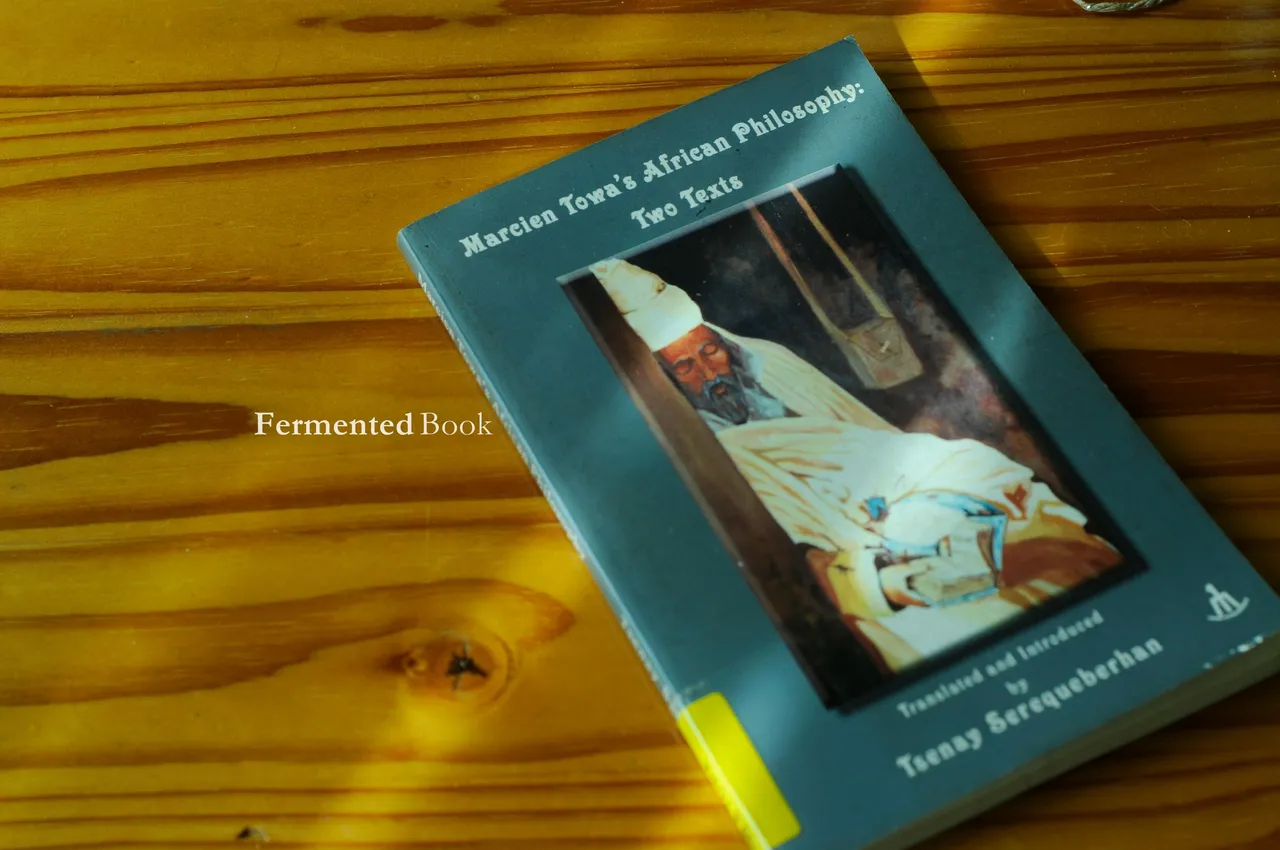
I stood in the bookshop, and I saw a small thin book on sale. I saw the name “Serequeberhan”, and my heart began beating faster because I know how expensive these books are. I did not immediately recognise the title. In the four years that I have been doing research on Serequeberhan’s work, I have yet to have come across this book. And I am not sure why it took me so long to see this book for the first time.
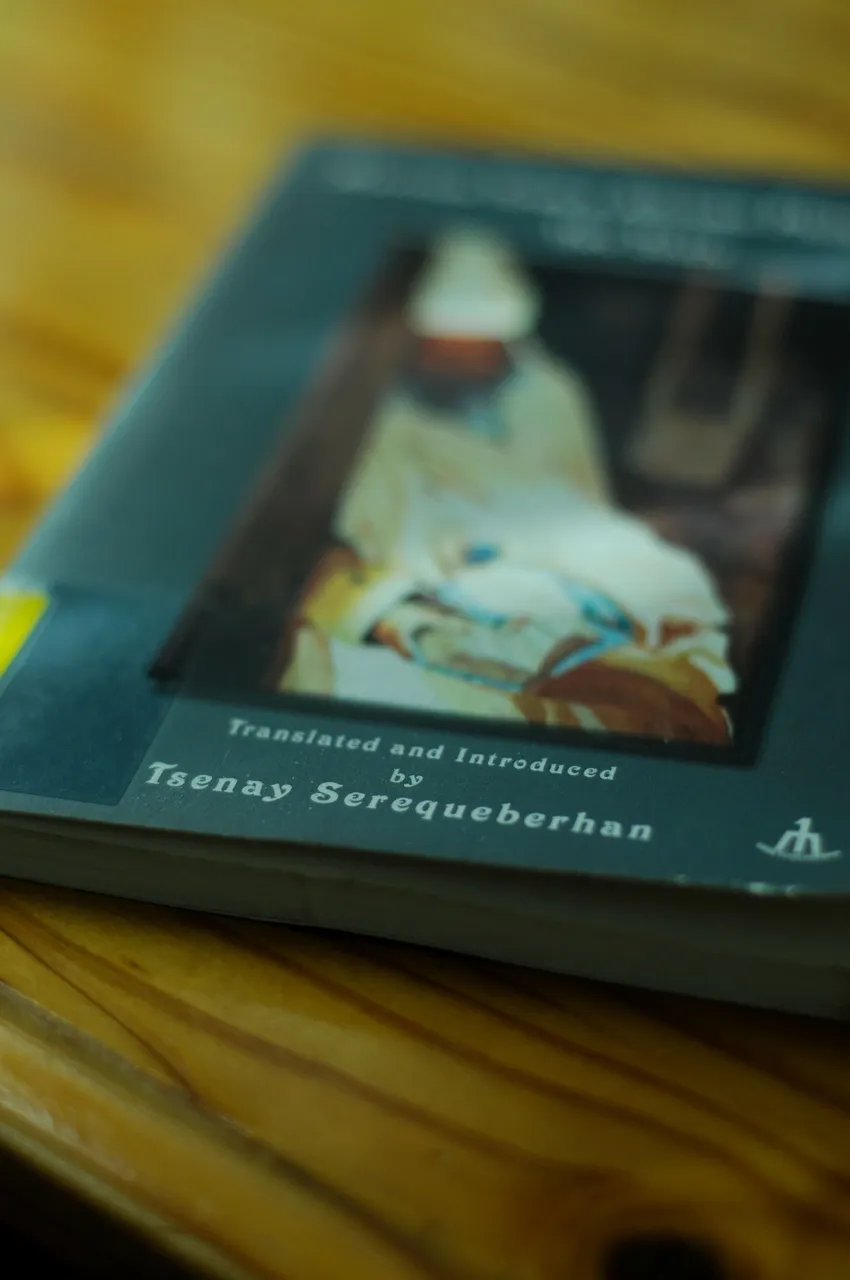
But even though the book was on special, it was still too expensive for me to buy. I am not sure why academic books need to be so expensive, because the normal public will never be able to buy it. I am lucky, I have some research funds which I can use to buy these books, but because they are so expensive, even though I have some money in the research funds, it does not last long. Some books are R5 000 or about $280, which is just unthinkable for me to pay for a book. I have spent so much on books already, but doing that amount for one book is not in my budget.
Either way, I had the opportunity to borrow the book from the library, and I read it in a sitting. It was basically just a long essay with some writing by Serequeberhan in the translator’s notes.
After finishing my PhD, and reading these “older” ideas from a new perspective, that is, from Marcien Towa, it is interesting to see just how many ideas Serequeberhan has gained from Marcien Towa, and for that fact, from so many other authors (especially Amilcar Cabral).
The book consists of two texts. Both texts in essence point to the same idea: African philosophy has an old history, and having a history and a past is essential to having a philosophy. This is a more nuanced claim that the simple claim of “African philosophy exists – look at example XYZ, it is the same as those from the West.”
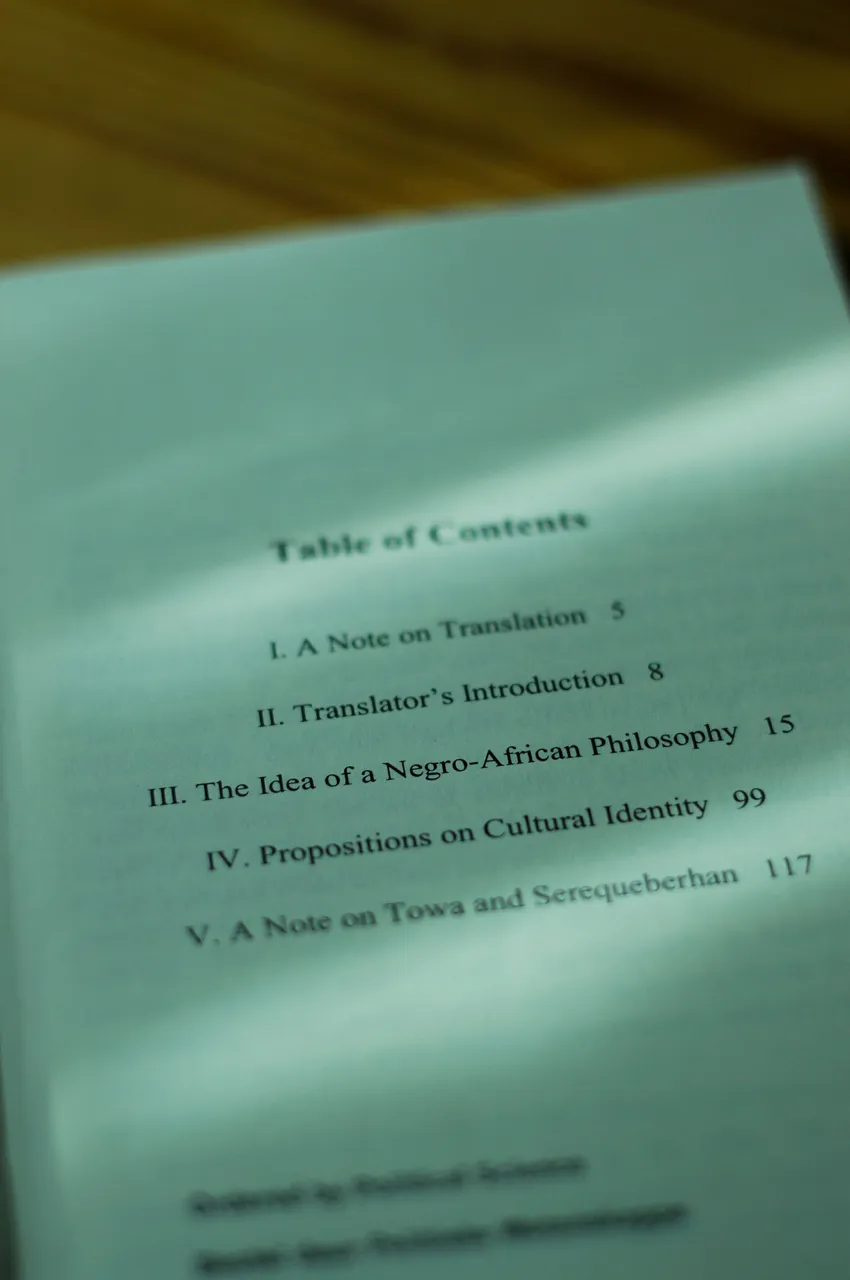
This is usually the way people want to address the “What is African philosophy?” and “Does Africa have a philosophy?” questions. But Towa did not go this route. He first discussed the idea of what philosophy is. He then carefully looks at different examples of texts and oral prose that according to him shows that African philosophy has been practiced. Not by pointing to examples that look similar to those from the West, but rather to look at examples of what Africa has produced and through a hermeneutic interpretation show how these stories are inherently philosophical – not on the basis of paradigmatic Western philosophy’s standard, but on the idea of what philosophy itself is.
But in this, one might already also indicate that this idea of what philosophy is, can and should be challenged. Not because it is problematic in the way Towa used it, but because for me personally, philosophy is already and inherently meta-philosophy: the idea of discussing what philosophy is and should be is already philosophy itself.
That said, the importance of these two texts, for me, is simply that it starts to (already in 1979) break away from what the West claims to be philosophy as the universal, the paradigmatic example to which all philosophy needs to confirm to be called philosophy. The first text, “The Idea of [an] African philosophy”, beautifully and systematically goes through various examples of especially oral stories that Towa personally engaged with, and I really enjoyed his philosophical interpretations thereof.
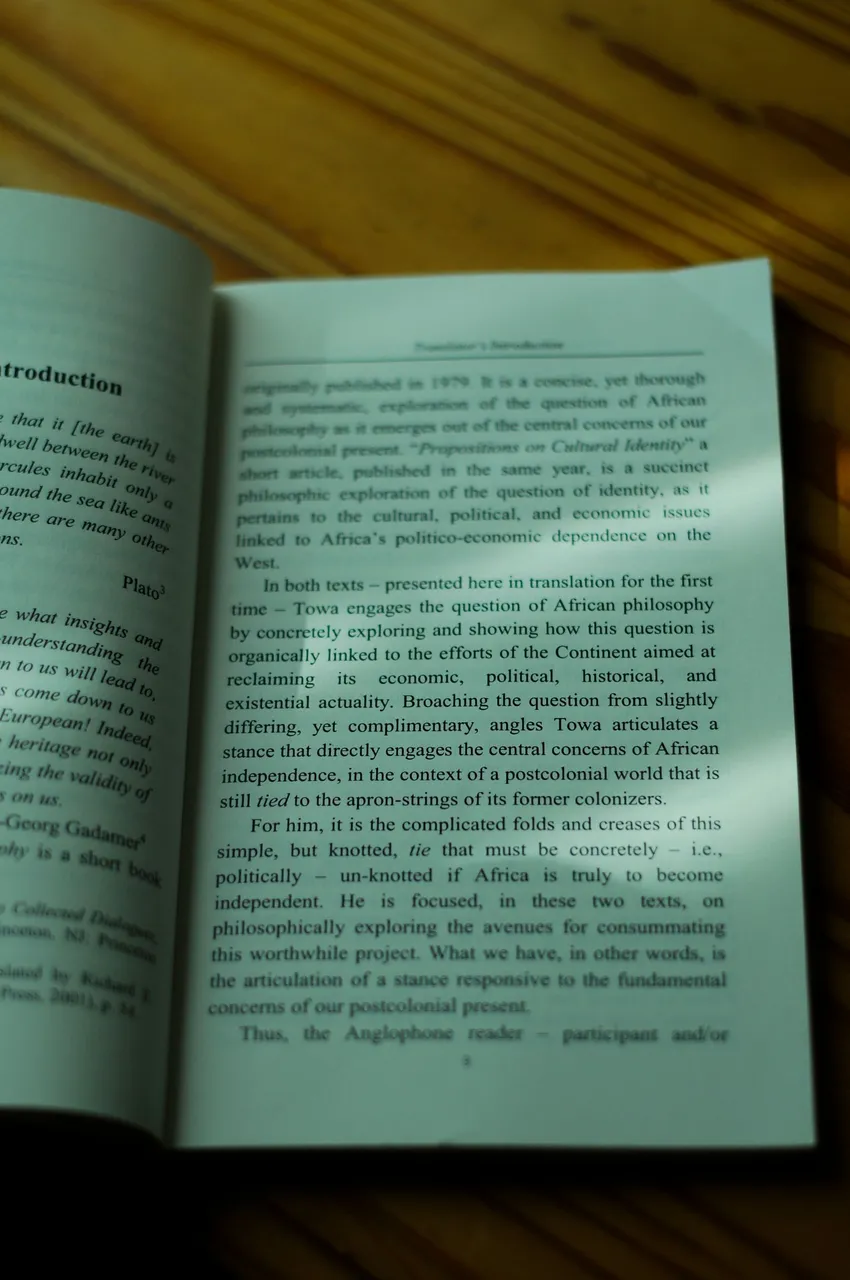
As Serequeberhan noted in the translator’s introduction, even though this text is a bit on the older side, it contains ideas that are relevant now, especially in my PhD. Even though I could have used this book, I think that it needs to be done in a separate work, especially in drawing out all of the inherent similarities between Towa and Serequeberhan. This might be a really interesting idea, and on that I will likely turn into a paper if I get the time to write it.
This is a book that most people in the world probably will never come across, even less read. But if you ever see the book, buy it, read it, and engage with the ideas. It is really not that academic and tough to read. For now, I will try to find a cheaper copy for myself, as I will most likely read it again and again, exactly for the reason that it reads to “easy”.
I hope that you will read some philosophy soon.
Keep well.
All of the musings and writings are my own, albeit inspired by Towa and Serequeberhan. The photographs are also my own, taken with my Nikon D300.
